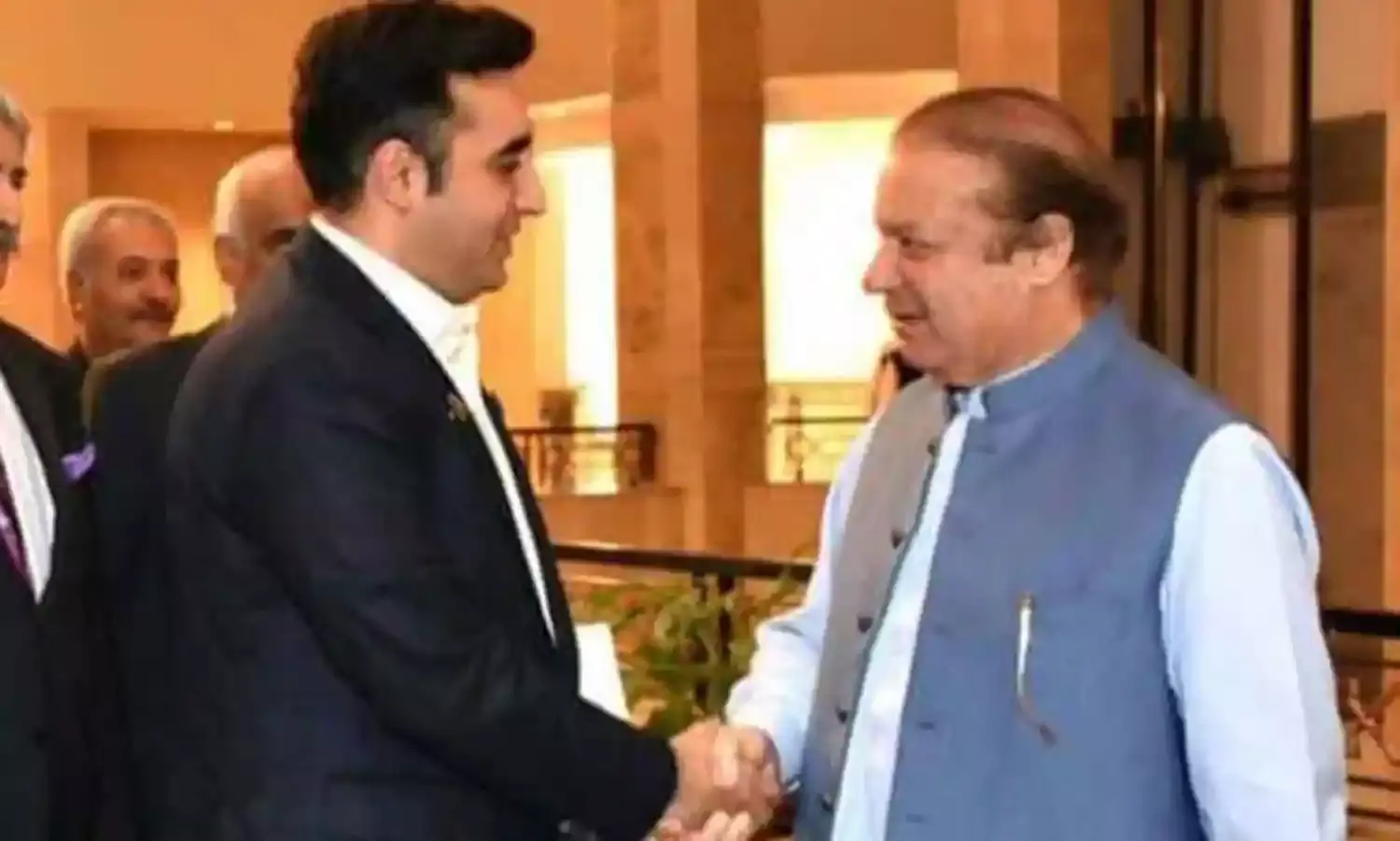Sharif-Bhutto Coalition Likely in Pakistan
Support of 134/266 elected members needed to form a government

A coalition between the Pakistan Muslim League (N) led by Nawaz Sharif and the Pakistan Peoples’ Party (PPP) led by Bilawal Bhutto, with some Independents roped in from the group backed by the Pakistan Tehreek-e-Insaf (PTI), is the most likely outcome of current efforts to form a government after the February 8 split electoral verdict.
Although the PTI-backed Independents are the single largest group in the National Assembly (NA) with 101 members, they are an amorphous group. To form a government, a party would have to get the support of 134 out of the 266 elected members.
Syed Zulfikar Bukhari, a senior PTI member, told ‘Al Jazeera’ that the PTI-backed Independents would merge with a small party so that they could go into parliament under a symbol and participate in government.
“We will join a political party of the choice of our leader, Imran Khan,” Bhukari said. But this is an onerous task.
Of the other parties, the Pakistan Muslim League (N) led by Nawaz Sharif seems better fitted to form a coalition. It had led a PML (N)-Pakistan Peoples’ Party (PPP) coalition before it handed over the reins of government to a Caretaker before the February 8 elections.
The PML (N) has 75 seats and the PPP has 54 in the current Assembly. But to form a government, the two of them will have to get the support of a few Independents backed by the PTI to get to 134. This is not impossible as power attracts like a magnet, especially when the PML (N) is backed by the army.
Therefore, Pakistan is likely to be back to square one, with a PML (N)-PPP coalition. This would suit the army.
There are hints from some PTI leaders that the PTI-backed Independents will sit in the opposition and play a vigilante role and hope to come to power in the next elections. And the opportunity to be in power may come soon as no civilian government in Pakistan has been able to complete its term.
The election results reflect a confused and apathetic electorate. Only 48% voted. The fragmented mandate and the lack of decisive victory by any single party could delay government formation and exacerbate economic problems that are crying for attention.
The ‘Dawn’ newspaper said that market and business are unlikely to find solace in the election outcome.
“A frail coalition government, particularly at this critical juncture when Pakistan grapples with deep economic challenges, spells potential trouble for the nation and its economy. The immediate response of the capital market, observed a day after the general elections, unmistakably reflected the sentiments of the business community.”
“The Pakistan Stock Exchange (PSX) index experienced a sharp decline initially before showing signs of partial recovery later in the day. Ultimately, on Friday last, the PSX index closed at 62,945, registering a decrease of 1,200 points or 1.8 per cent from its previous level,” the paper noted.
The PML(N)- PPP coalition government’s track record of economic management had not been inspiring, the paper stated.
Ehsan Malik, CEO, Pakistan Business Council (PBC) told Dawn about the importance of swiftly securing a new deal with the International Monetary Fund (IMF) to maintain economic stability.
“Pakistan requires a stable government to continue stabilisation efforts of the caretaker government. Securing a substantial, extended and more reform-centric 24th Extended Fund Facility from the IMF is crucial. This must be coupled with debt restructuring to restore the lender’s confidence,” Malik said.
Painting a grim picture, he added, “There are no home-grown solutions. Procrastination, as seen in the past, will be costly. Engaging in adventurous exchange rate operations won’t yield positive results either.
“It’s imperative to prioritise enduring hardships for eventual gains, although historical precedent in this regard is lacking. The government, not the IMF, bears the onus of reforms; a reform-centric programme links tranche releases to progress.
“While external solvency is crucial, managing inflation is a key expectation from the new government. Additionally, bolstering direct cash transfers to ease burden on the needy necessitates careful fiscal management.
“Priorities include reinstating fiscal discipline, curbing government debt, reducing inflation and lowering borrowing costs for both the public and private sectors. Addressing inefficiencies in state-owned enterprises and the energy sector will require strong political will, as will broadening the tax base.”
Malik pointed out that a “Cross-party consensus on key economic challenges has remained elusive in Pakistan. But a troubling consensus exists to maintain the status quo, characterised by a narrow tax base, questionable subsidies, bleeding state-owned enterprises, an inefficient energy sector and excessive regulatory controls.”
Governments come and governments go in Pakistan, but the situation remains the same. The army, which is said to be the watchdog, has intervened many times with an aim to set things right. But after failing to deliver the goods it has restored power to civilian politicians in an inexorable cycle.



